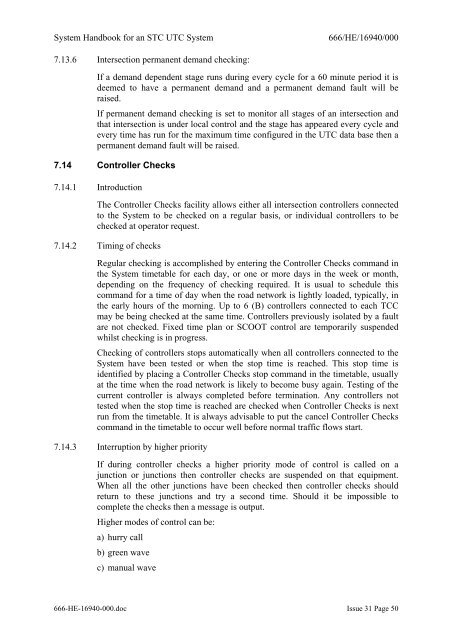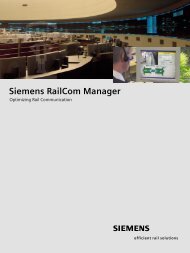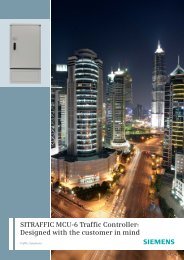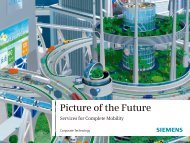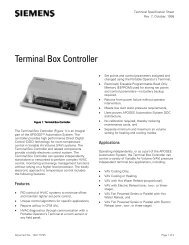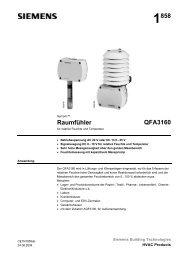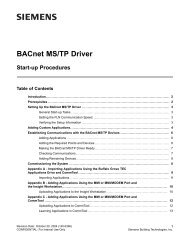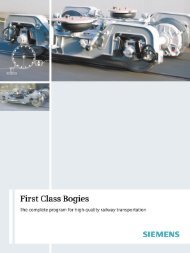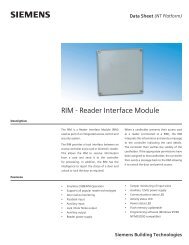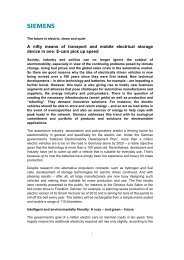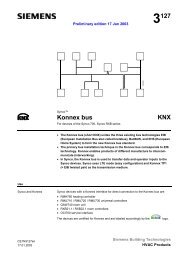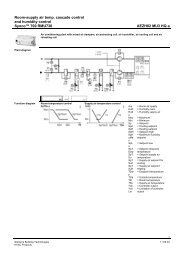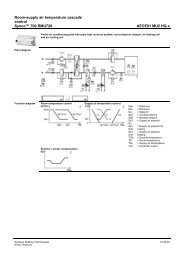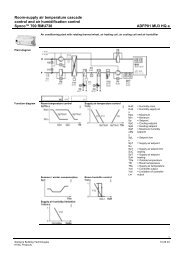UTC System Handbook - Siemens
UTC System Handbook - Siemens
UTC System Handbook - Siemens
Create successful ePaper yourself
Turn your PDF publications into a flip-book with our unique Google optimized e-Paper software.
<strong>System</strong> <strong>Handbook</strong> for an STC <strong>UTC</strong> <strong>System</strong> 666/HE/16940/000<br />
7.13.6 Intersection permanent demand checking:<br />
If a demand dependent stage runs during every cycle for a 60 minute period it is<br />
deemed to have a permanent demand and a permanent demand fault will be<br />
raised.<br />
If permanent demand checking is set to monitor all stages of an intersection and<br />
that intersection is under local control and the stage has appeared every cycle and<br />
every time has run for the maximum time configured in the <strong>UTC</strong> data base then a<br />
permanent demand fault will be raised.<br />
7.14 Controller Checks<br />
7.14.1 Introduction<br />
The Controller Checks facility allows either all intersection controllers connected<br />
to the <strong>System</strong> to be checked on a regular basis, or individual controllers to be<br />
checked at operator request.<br />
7.14.2 Timing of checks<br />
Regular checking is accomplished by entering the Controller Checks command in<br />
the <strong>System</strong> timetable for each day, or one or more days in the week or month,<br />
depending on the frequency of checking required. It is usual to schedule this<br />
command for a time of day when the road network is lightly loaded, typically, in<br />
the early hours of the morning. Up to 6 (B) controllers connected to each TCC<br />
may be being checked at the same time. Controllers previously isolated by a fault<br />
are not checked. Fixed time plan or SCOOT control are temporarily suspended<br />
whilst checking is in progress.<br />
Checking of controllers stops automatically when all controllers connected to the<br />
<strong>System</strong> have been tested or when the stop time is reached. This stop time is<br />
identified by placing a Controller Checks stop command in the timetable, usually<br />
at the time when the road network is likely to become busy again. Testing of the<br />
current controller is always completed before termination. Any controllers not<br />
tested when the stop time is reached are checked when Controller Checks is next<br />
run from the timetable. It is always advisable to put the cancel Controller Checks<br />
command in the timetable to occur well before normal traffic flows start.<br />
7.14.3 Interruption by higher priority<br />
If during controller checks a higher priority mode of control is called on a<br />
junction or junctions then controller checks are suspended on that equipment.<br />
When all the other junctions have been checked then controller checks should<br />
return to these junctions and try a second time. Should it be impossible to<br />
complete the checks then a message is output.<br />
Higher modes of control can be:<br />
a) hurry call<br />
b) green wave<br />
c) manual wave<br />
666-HE-16940-000.doc Issue 31 Page 50


